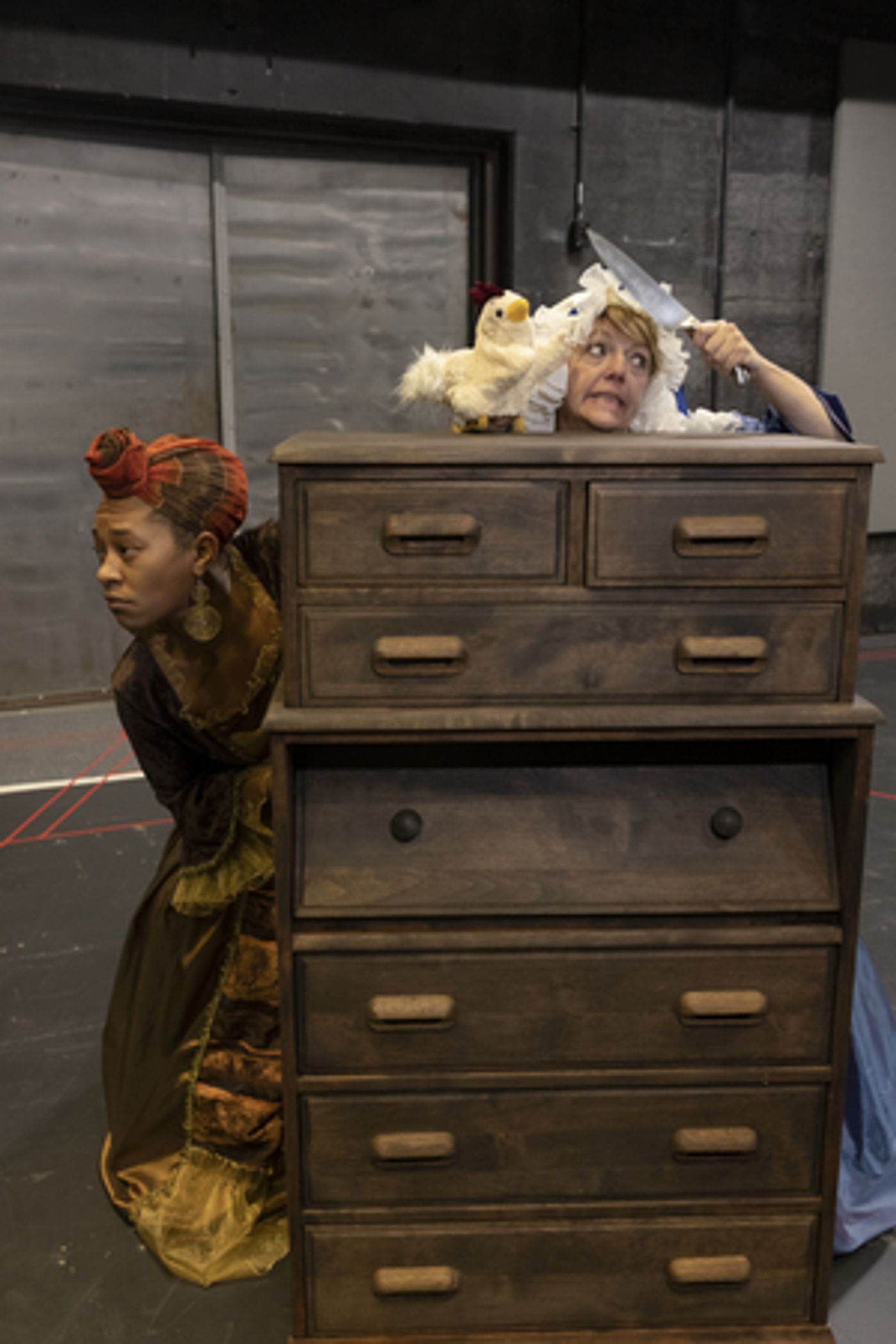Review: MARTHA BAKES at CoHo Theatre
A filmed adaptation of this production by The Vanport Mosaic is planned for next year.

It's popular mythology that George Washington freed all his slaves upon his death. But, like most popular mythologies surrounding the founding of our country, that's a massive oversimplification.
Of the 317 slaves at Mount Vernon, only 123 were actually owned by Washington. The rest were "dower slaves," i.e., slaves who were part of Martha's dowry when she married George. They were owned by Martha's first husband's family, the Custises, so Washington didn't have the power to free them. In addition, even the slaves that he did free weren't free immediately. With the exception of one person, they were to remain with Martha until her death. After Washington died, Martha, concerned that the slaves wanted to claim their freedom early, became afraid that they were trying to kill her.
This is all true (you can read more about it at History.com and MountVernon.org), and it's the background for MARTHA BAKES, a new play by Don Wilson Glenn, that just had its world premiere at CoHo Theatre, presented by The Vanport Mosaic and directed by Damaris Webb. The play imagines the relationship between the newly-widowed-for-the-second-time Martha, who is holed up in the kitchen during an insurrection by slaves demanding their freedom, and Ona Marie Judge, a dower slave who ran away years earlier and is returning to Mount Vernon to ask for official freedom for herself and her family.
MARTHA BAKES is essentially two solo one-acts: Martha's story in Act I and Ona's in Act II, with a brief interaction at the end. The central questions are about the nature of freedom -- they are both women, not entitled to the privileges of men, including the vote, but as a rich white woman, Martha is and always will be much more free than Ona, even if Ona no longer lives as a slave. The play isn't limited to its historical period. Instead, it explores the long tail of slavery and the continuing impact of racial prejudice and oppression, right up to the murder of George Floyd and the Black Lives Matter protests of last summer.
It's also...strangely...a comedy? MARTHA BAKES is described as "part historical biography, part cooking show, and all physical theatre," and it frequently veers off into stand-up routines, vaudeville acts, and cooking show segments (perhaps not coincidentally, Martha Bakes is also the title of Martha Stewart's current cooking show).
It's a lot, at times too much. The play is packed full of history we should all be familiar with but probably didn't learn in school (Hamilton fans will have an advantage), the relationship between the two women provides plenty of dramatic fodder (they've known each other for so long but never on equal footing -- do they view each other as family? friends? just two people existing in the same space?), and Glenn's script is full of lines that merit unpacking (Example: "These Founding Fathers who ratified the Constitution only made up 6% of the population. This could not be said to be a representation of who this country was but who it was designed for.").
But much gets lost in the whipsawing from history lesson to cooking show to vaudeville act and back again. The frantic feeling was especially true in the first act, as Melanie Moseley embraced the "all physical theatre" aspect in her portrayal of Martha more emphatically than Victoria Alvarez-Chacon did in her subtler, and more effective, performance as Ona.
A filmed adaptation of MARTHA BAKES designed for educational settings is planned for next year, and I look forward to seeing how the play evolves through that process. I'm hoping for a little more clarity about the history, a little more time to sit with the ideas, and a little less distraction.
Learn more about MARTHA BAKES and other programming from The Vanport Mosaic here: https://www.vanportmosaic.org/
Photo credit: Shawnte Sims
Reader Reviews

Videos

